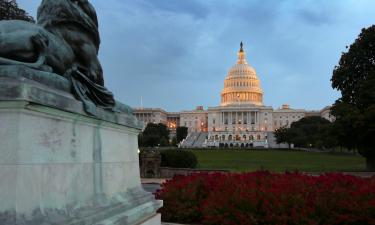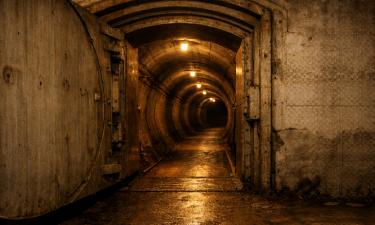Revolutionary Optimism, Western Nihilism, by Andre Vltchek, A Review
By Deena Stryker
American progressives have been desperate lately that their cries merely echo through a wilderness, but now comes Andre Vltchek's latest book, Revolutionary Optimism, Western Nihilism to magnify our voices.
As a Russian born but Western raised 'professional expat', Vltchek has spent his life covering the world's tragedies, in film and word, until he can no longer bear the pain. As revealed by a series of short takes written over the last few years, Vltchek's only hope is the energetic optimism that animates revolutionaries the world over. I was privileged to observe that phenomena in early sixties Cuba, as was at other periods Vltchek. But Andre has also seen and documented the horrors of empire across our troubled world, over and over again until cry out he must.
Remembering how Hugo Chavez was vilified in the name of politeness for mocking George W. Bush at the UN in 2006, he warns: "Well, that is not how real revolutions have been ignited. This is not how the successful anti-colonialist wars are fought. When the real battle begins, 'politeness' is actually mostly unacceptable, simply because the oppressed masses are endlessly pissed off, and they want their feelings to be registered and expressed forcefully by the leaders. Even the search for 'objectivity' is often out of place, when still fragile revolutions have to face the entire monumental hostile propaganda of the regime (of the Empire), as well as foreign sponsored 'opposition', NGOs and corrupt 'civil societies'."
It's twelve years later, and Donald Trump has been wondering aloud whether it's time to invade Chavez's hand-picked successor, Nicholas Maduro for failing to maintain the privileges of the few as he tries to ensure the survival of the many. Vltchek castigates the 'Western left-wing' for failing to support revolutions around the globe, and As Trump tries to cut a deal with North Korea, he points out something of which few in the US are aware: the 'hermit kingdom' joined Cuba in Angola and Namibia's fights against colonialism. His description of what, on the other hand, passes for intellectual is a paean to those of us who have fled academia:
Cults of formal learning, of facts and information have been erected. Holed up in innumerable officially recognized institutions, the scholars, certified demagogues, researchers and media people have been 'studying' each other, recycling and quoting each other, filling millions of books with essentially the same narrative. 'New' and 'revolutionary' academic discoveries mostly lead to the same old conclusions, to stale intellectual and moral passivity, cowardice and spinelessness.
Vltchek's prescience is remarkable, given that these essays were written before the election of Donald Trump, which, with deep state accusations of 'Russian interference in our (sic) democracy', has triggered internet wars over 'truth'. Donald Trump's cries of 'fake news', suggest that "It is now easy to imagine that the Empire might soon introduce some fascist institution like a 'Department of Truth'".
When Western journalists refer to revolutions or simply, existing socialist countries, the emphasis is always on violence (as is the current review of 1968 demonstrations in In These Times attests)... For all Vltchek's penchant for drama, it is interwoven with crucial information:
The legal systems of socialist societies with their emphasis on socio-economic protection and support of the workers, are completely different from those of the capitalist societies, in which the central role of law is to protect private property and ease the flow of capital, in opposition to the interests of the workers.
Indeed, the Western media invariably talks about Russia either with accusations or disdain, never mentioning the fact that its current president rescued the socialist baby from the bathwater that Yeltsin was throwing out, and that his high domestic approval ratings are largely due to real improvements in the lives of ordinary Russians, even as he modernizes the country in the face of Western disparagement.
For those of us who have been pursuing the crusade against empire for decades, feeling our efforts are almost in vain, Vltchek's latest contribution is both a passionate cry and a breath of fresh air.
***
Link to paperback: https://www.amazon.com/Revolutionary-Optimism-Western-Nihilism-Vltchek/dp/6025095418/
Link to e-book: https://www.amazon.co.uk/Revolutionary-Optimism-Western-Nihilism-Vltchek-ebook/dp/B07G38G3V3/
***
About Deena Stryker:
Born in Phila, I spent most of my adolescent and adult years in Europe, resulting over time in several unique books, my latest being Cuba, Diary of A Revolution
I began my journalistic career at the French News Agency in Rome, spent two years in Cuba finding out whether the Barbudos were Communists before they made the revolution ('Cuba 1964: When the Revolution was Young'). After spending half a decade in Eastern Europe, and a decade in the U.S., studying Global Survival and writing speeches in the Carter State Department, I wrote the only book that foresaw the fall of the Berlin Wall AND the dissolution of the Soviet Union ("Une autre Europe, un autre Monde'). My memoir, 'Lunch with Fellini, Dinner with Fidel', tells it all. 'A Taoist Politics: The Case for Sacredness', which examines the similarities between ancient wisdom and modern science and what this implies for political activism; and 'America Revealed to a Honey-Colored World" is a pamphlet about how the U.S. came down from the City on a Hill'.
www.otherjonesii.blogspot.com
Subscribe to Pravda.Ru Telegram channel, Facebook, RSS!



